Daniel Garber talks with Mia McKenna-Bruce about How to Have Sex

Mia McKenna-Bruce Photography: David Reiss, Hair: Ben Talbot, Make-Up: Sara Hill, Styling: Tilly Wheating
Hi, this is Daniel Garber at the Movies for culturalmining.com and CIUT 89.5 FM.
Tara and her two best friends, Em and Skye, have finished school, written their A Levels and want to celebrate. So, like tens of thousands of others, off they go to a mediterranean resort with more sex, drugs, alcohol and loud music than you can shake a stick at. But the elephant in the room is Tara — she’s a “big fat virgin”, and her mates want to make sure she returns home cured of that ailment. But when the time comes, Tara doesn’t know what she’s supposed to do, who she’s doing it with, and whether she has any say in the matter. And when it doesn’t go as planned, she doesn’t know what to do, or who to turn to. Turns out she still doesn’t know how to have sex.
How to Have Sex is a stunning bittersweet, coming-of-age  drama about friendship, cultural expectations and consent. It’s writer-director Molly Manning Walker’s first feature and stars Mia McKenna-Bruce as Tara. The film won the prestigious Un Certain Regard Best Film prize at Cannes, and is nominated for best British film at the BAFTA awards. Mia won Best Lead Performance at the British Independent Film Awards and was named Screen International’s ‘Star of Tomorrow’. She has also appeared in many TV shows and films since 2009, including The Witcher, Jane Austen’s Persuasion, and Vampire Academy.
drama about friendship, cultural expectations and consent. It’s writer-director Molly Manning Walker’s first feature and stars Mia McKenna-Bruce as Tara. The film won the prestigious Un Certain Regard Best Film prize at Cannes, and is nominated for best British film at the BAFTA awards. Mia won Best Lead Performance at the British Independent Film Awards and was named Screen International’s ‘Star of Tomorrow’. She has also appeared in many TV shows and films since 2009, including The Witcher, Jane Austen’s Persuasion, and Vampire Academy.
How to Have Sex opens in Canada 0n February 9th.
I spoke with Mia in London via Zoom.
Mia won the 2024 BAFTA Rising Star Award on February 18, 2024.
Daniel Garber talks with Valerie Kontakos and David Bourla about Queen of the Deuce

 Hi, this is Daniel Garber at the Movies for culturalmining.com and CIUT 89.5 FM.
Hi, this is Daniel Garber at the Movies for culturalmining.com and CIUT 89.5 FM.
New York City in the 1970s is a gritty city with a chip on its shoulder. Crime is rampant, and its government faces bankruptcy. But it’s also exploding with creativity and freedom of expression, in film, theatre, music and art, while the sexual revolution, the women’s movement and gay rights are in full swing. The city’s centre is 42nd street, and the strip running from Times Square to the Port Authority and north on 8th ave is filled with porn theatres and peep shows. And on top of it all sits a Jewish Greek-American woman, Chelly Wilson, ruling over her porn empire.
Queen of the Deuce is a fantastic new documentary about Chelly’s  life, her work, her family and the world she built. Born in Thessaloniki, she hid her children, escaped the Nazi invasion, and gradually made her way to the top of the NY porn movie industry. The doc includes personal photos and letters, period footage, animation and talking heads to give a first-hand look at a previously unknown hero.
life, her work, her family and the world she built. Born in Thessaloniki, she hid her children, escaped the Nazi invasion, and gradually made her way to the top of the NY porn movie industry. The doc includes personal photos and letters, period footage, animation and talking heads to give a first-hand look at a previously unknown hero.
The film was directed by Valerie Kontakos, a well-known documentarian, founder of the NY Greek Film festival and on the Board of Directors of the Greek Cinematheque. The film features members of Chelly’s family, including her grandson, David Bourla, a screenwriter in his own right, known for action films like Push.
I spoke with Valerie in Athens and David in New York City from Toronto, via Zoom.
Queen of the Deuce is playing in Toronto at the Hot Docs Cinema as part of TJFF on June 3rd, 2023.
On the media. Films reviewed: A Wounded Fawn, Spoiler Alert, Empire of Light
Hi, this is Daniel Garber at the Movies for culturalmining.com and CIUT 89.5 FM.
It’s December, but not everything is about Christmas. This week I’m looking at three new movies with themes set in the arts: there’s a woman who works at a cinema but never watches movies; a serial killer who finds himself part of an ancient greek play, and a writer for TV Guide who thinks his life is like a sitcom.
Co-Wri/Dir:Travis Stevens
It’s a fine art auction in NY City, and the collectors and dealers are in fighting mode tonight. The prized item is a small bronze sculpture from ancient Greece showing the Furies seeking revenge on a prone man. Kate (Malin Barr) gets the high bid and returns home triumphant with the piece in hand. So she’s surprised to see Bruce (Josh Ruben) a rival bidder, show up at her door. His boss still covets the statue and is willing pay double. Doubling her money in 24 hours seems like a good deal. She invites him in for a glass of champagne. But before long, she is dead on  the floor in a pool of blood, and the sculpture — and Bruce — are long gone.
the floor in a pool of blood, and the sculpture — and Bruce — are long gone.
Later, Meredith, another beautiful young woman (Sarah Lind) is excited over an upcoming weekend in the country with her latest paramour. Her last boyfriend was abusive, but her new one seems nice, generous and attractive. And he’s into fine art just like Mer (she works in a museum).They set off for a fun filled adventure at his isolated cottage in the woods. She is thrilled to see the cabin is actually a finished home overlooking a dense forest, and decorated with modern art. But something is strange: she hears a woman’s voice in her ear warning her to leave. And she recognizes the Greek sculpture of the Furies on his coffee table — she authenticated it for an auction just a few weeks ago. (It’s just a copy, says Bruce) What she doesn’t know is that Bruce is a 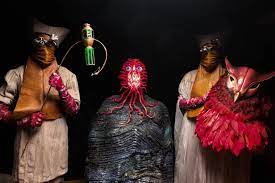 serial killer… and she might be his next victim. (Bruce is waiting for directions from a gigantic man-owl with blood red feathers who tells him who he should kill). Can Mer fight him off? And where do those strange voices come from?
serial killer… and she might be his next victim. (Bruce is waiting for directions from a gigantic man-owl with blood red feathers who tells him who he should kill). Can Mer fight him off? And where do those strange voices come from?
A Wounded Fawn is a low budget, exquisitely-crafted art-house thriller horror. What starts as a simple slasher, soon turns into a revenge pic about halfway through, where Meredith, Kate and a third victim return as the Furies to visit punishment upon Bruce. What’s really remarkable is how it incorporates greco-roman aesthetics, mythology and theatre into what could have been a simple scary horror movie, to turn it into something totally original. While it’s not always clear whether something happens for real, or just inside Bruce’s damaged brain, it doesn’t matter. A Wounded Fawn is weird and fascinating, either way.
Dir: Michael Showalter
It’s the 1990s. Michael Ausiello (Jim Parsons) is a nerdy gay guy who lives in NJ but works in Manhattan. He grew up obsessed by TV, living his life as if he were a character on an 80s sitcom. Now he’s a writer for TV Guide, where he devotes himself to work and remains perpetually single. Until he meets Kit Cowan (Ben Aldridge) at a dance club — he’s handsome, fit and popular and says Michael is just his type —a tall geek. Kit’s also in the media — he’s a professional photographer. They hit it off, but keep certain secrets to themselves. Kit lives a free-wheeling sex life — he’s not one to settle down. And Michael never came out to his small-town parents (Sally Field and Bill Irwin); he’s afraid they won’t accept him. And he’s afraid to show Kit his apartment. What is he hiding there? His Smurf collection; a veritable fuzzy blue tsunami filling every nook and cranny. But after settling their deferences, they eventually move in together. Most of the Smurfs are packed away, Michael comes out to his parents (they still love him) and they settle into domestic bliss.
Flash forward 15 years, and their relationship is on the rocks; the spark has died and they’ve grown a bit distant toward each other. But everything changes when — spoiler alert! — Kit discovers he has terminal cancer. Can they handle his 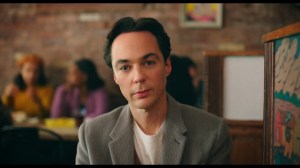 imminent death? Will their love be rekindled? And how will they spend what might be their last year together?
imminent death? Will their love be rekindled? And how will they spend what might be their last year together?
Spoiler Alert is a touching dramady about love and loss, based on a true story — Michael Ausiello’s own memoir of his life with Kit. Like the book, the movie begins with the death of Kit in Michael’s arms, hence “spoiler alert”. The director Michael Showalter, previously made The Big Sick, also about a couple and their family facing a serious illness. So is this the gay Big Sick? Not exactly — it’s a new story with a different style, like his version of Michael’s childhood as a sitcom, complete with laugh-track. And there are lots of funny parts. The bigger question is, is Jim Parsons up to playing a dramatic role, or is he forever stuck in peoples’ minds as Sheldon on the Big Bang? In this case, I think he pulls it off. He fits the role and manages to make him quirkily sympathetic. So if you’re into terminal illness comedies, here’s a good one to try on for size.
Wri/Dir: Sam Mendes
Its the winter of 1981 in a sea-side city in southern England. Hilary (Olivia Coleman) is a middle-aged woman who works at the Empire Theatre as the front of house manager. It’s an art-deco movie palace, but like the town, it’s long past its prime. Half the screens are closed and the third floor ballroom has been taken over by pigeons. Hilary is lonely and depressed, on meds, recovering from a hospital stay. Her social life consists of ballroom dancing with old men, and her sex life is furtive encounters with her sleazy, married boss (Colin Firth) in his darkened office.
But her life changes when a young man, Stephen (Michael Ward) is hired to work there. She finds him attractive, ambitious (he wants to study architecture at university)` and compassionate: he nurses a wounded pigeon back to health. He’s mom’s a nurse, from the Windrush generation, but he wants more. Hillary may be his mom’s age but there’s something there. After a few intimate moments they start a clandestine relationship. But Michael’s real ambition is to leave this town — to escape increasingly racist street violence (he’s black), and to become more than just an usher. Can their 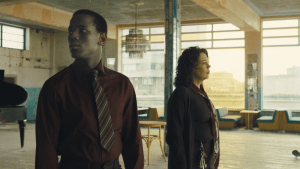 relationship last? And if they break up, can the fragile Hilary handle it?
relationship last? And if they break up, can the fragile Hilary handle it?
Empire of Light is a romantic time capsule of life in Thatcher’s England. It’s also about the joy and troubles of an intergenerational, mixed-race love affair. And it’s also about sexual harassment and anti-black racism in everyday life. And it’s also about Hillary’s mental illness, including her sudden, manic episodes. And it’s also about the rise of skinheads and the National Front, and the concurrent anti-racist ska revival. And it’s also about the collective friendship that develops among the people working at the Empire theatre. (Maybe too many ands for one movie?)
Like many of Sam Mendes films (which I generally don’t like), it’s pandering and emotionally manipulative and has a meandering storyline, that keeps you watching while it’s on, but  leaves you feeling vaguely unsatisfied afterwards. But the acting is really good, especially Olivia Coleman and Michael Ward, who rise above the movie’s many flaws. Maybe even good enough to make Empire of Light worth a watch, despite all its problems.
leaves you feeling vaguely unsatisfied afterwards. But the acting is really good, especially Olivia Coleman and Michael Ward, who rise above the movie’s many flaws. Maybe even good enough to make Empire of Light worth a watch, despite all its problems.
Empire of Light and Spoiler Alert both open this weekend in Toronto; check your local listings. And A Wounded Fawn is now streaming on Shudder.
This is Daniel Garber at the Movies, each Saturday morning, on CIUT 89.5 FM and on my website, culturalmining.com.
Lost Souls. Films reviewed: Apples, Moloch, Passengers of the Night
Hi, this is Daniel Garber at the Movies for culturalmining.com and CIUT 89.5 FM.
It’s Nunavut day, so what better time is there to catch up on Inuit movies. Slash/Back, a brand-new movie about aliens in a small arctic town, is playing right now. The Grizzlies is a feel-good film about a high school lacrosse team. And if you’ve never seen Zacharias Kunuk’s movies — including The Journals of Knud Rasmussen and Atanarjuat: The Fast Runner — well… you’d better.
But this week I’m looking at three new European movies — from Greece, the Netherlands and France — about lost souls. There’s a lonely guy in Athens who loses his memory in a pandemic; a divorced mom in Paris who seeks solace in late night talk radio; and a widowed mom in the Netherlands who is haunted by the lost souls… in a peat-moss bog.
Wri/Dir: Christos Nikou
Aris (Aris Servetalis) lives by himself in Athens, Greece. One day while going for a walk he forgets where he lives. Also his family, his identity, even his first name. He has acute amnesia, the symptom of a strange pandemic, sweeping across the planet. He’s taken to hospital, with the hope a family member will arrive to identify him. But no one comes. About the only thing he knows is he likes apples. The hospital arranges for him to move into an apartment, where they hope he can regain his memory, or at least achieve some level of self worth and identity. To achieve this they put him into an experimental program. He’s given a series of mundane tasks, all of which he is expected to record, using a polaroid camera. Ride a bike, go to a movie, attend a party, drink alcohol, meet a new friend. It also includes things like picking up a woman in a bar (he accidentally goes to a strip bar with embarrassing consequences) But during his recovery, while viewing the Texas Chainsaw  Massacre, he encounters another alienated, memory-deficient person.
Massacre, he encounters another alienated, memory-deficient person.
Anna (Sofia Georgovasili) is clearly on the same program. Two is better than one, so they begin to see one another, if in a detached, alienated way. But as time progresses, Aris begins to remember things, including sad memories he wants to suppress. Will Anna be his soul mate? Will he ever find his original home? And is there any meaning to his life?
Apples is a satirical look at modern urban alienation in a time of pandemic. Interestingly, this film was completed in 2019 BC, (before Covid). But  somehow it captures the mundane, seemingly meaningless medical obsessions, the injections, the tests, the isolation, loneliness and self-doubt that we all experienced over the past two years.
somehow it captures the mundane, seemingly meaningless medical obsessions, the injections, the tests, the isolation, loneliness and self-doubt that we all experienced over the past two years.
Writer-director Christos Nikou worked with the now famous Yorgos Lanthimos, on his earliest film, Dogtooth, and like that movie, it’s funny, weird and extremely awkward, with adults behaving like children, and people blindly obeying seemingly nonsensical rules. It takes place in the present day but it’s filled with obsolete gadgets like polaroid cameras, and cassette tape players not a cel phone or a laptop in sight. Aris Servetalis is excellent as the main character, who fits perfectly within the film’s minimalist feel.
I like this one.
Co-Wri/Dir: Nico van den Brink
Betriek (Sallie Harmsen) is a woman in her thirties who lives in an isolated home with her parents and her young daughter, in northern Netherlands. Her home is in a forest, surrounded by peat moss bogs. Her daughter goes to public school but Betriek likes the isolation — she thinks her family is cursed so it’s best to keep to herself. Easier said than done. Especially when a strange man appears in her living room! He can’t stop it, he says, they won’t let him! And his voice seems to be an unworldly chorus of a thousand souls. And then he tries to kill them all. Turns out he worked at a nearby archaeological dig, headed by Jonas (Alexandre Willaume) a Danish man.
Peat moss is a natural preservative and they’re digging up mummified bodies from ancient times. And when they examine them, they discover they are all victims of the same sort of ancient ritual sacrifice to some primeval god. By disturbing the graves they may have let loose ancient demons,  possessing her friends and family. Meanwhile, her mother is going through another difficult period with her brain — is it related? Her father says they’d better leave the place and never come back. And when Betriek encounters strange visions of a little girl sending her a message, she realizes things are very wrong. Will Jonas ever believe there’s something evil going on? Can Betriek break her family’s curse? Will they fall in love? And together can they fight off an ancient evil god?
possessing her friends and family. Meanwhile, her mother is going through another difficult period with her brain — is it related? Her father says they’d better leave the place and never come back. And when Betriek encounters strange visions of a little girl sending her a message, she realizes things are very wrong. Will Jonas ever believe there’s something evil going on? Can Betriek break her family’s curse? Will they fall in love? And together can they fight off an ancient evil god?
 Moloch is an excellent Dutch horror movie about life in a remote village built over secrets that never should have been disturbed. It sounds like a simple story, but actually it’s a multi-layered drama. The film even incorporates a school Christmas pageant where small children innocently reenact an ancient pagan tribute even while mayhem is happening outside. The movie’s in Dutch, but because of the multiplicity of languages, much of the dialogue is in English. And remarkable for a horror movie, the cinematography is gorgeous, as warm and grainy as any 70s Hollywood movie. I liked this one, too.
Moloch is an excellent Dutch horror movie about life in a remote village built over secrets that never should have been disturbed. It sounds like a simple story, but actually it’s a multi-layered drama. The film even incorporates a school Christmas pageant where small children innocently reenact an ancient pagan tribute even while mayhem is happening outside. The movie’s in Dutch, but because of the multiplicity of languages, much of the dialogue is in English. And remarkable for a horror movie, the cinematography is gorgeous, as warm and grainy as any 70s Hollywood movie. I liked this one, too.
Dir: Mikhaël Hers
It’s the mid-1980s in Paris. Elisabeth (Charlotte Gainsbourg) lives with her two teenaged kids high up in an apartment tower. Her daughter Judith, is outspoken and into politics, while her son Matthias (Quito Rayon- Richter) is more introspective — he gets in trouble for writing poems in history class. The dad, though, is nowhere to be seen. He moved in with his girlfriend and pays no child support. So Elisabeth is forced to search for a job to keep her family afloat. She finds solace listening to a late-night radio talk show, and applies to work there. She lands a job at the switchboard vetting callers and guests for the host, Vanda (Emmanuelle Béart). She invites a young woman to the show based on a touching letter she wrote. Tallulah (Noée Abita) is 18 but has lived on the streets of Paris for years, sleeping under bridges and in squats. She has raven hair, pale skin and doe eyes.
Elisabeth can’t stand the thought of her sleeping in the rough, so she invites Tallulah to stay, temporarily, in a spare room tucked away far above their apartment. She wants to keep her separate from her kids, but they soon meet up. She’s street smart, and teaches them how to live on nothing and tricks like how to get into a movie theatre without a ticket. Matthias is smitten by her and longs to take it further. But after a late night tryst, she flees the apartment and disappears, leaving the family shocked and saddened. Four years later, things have changed. The kids are growing up, Elisabeth has gained self-confidence and she has a day job and a much younger boyfriend named Hugo. But when her ex says he’s selling the home, it’s time for major changes. That’s when Tallulah reappears again at their door in a bad state. Can Elisabeth save Tallulah from her spiral into darkness? And what will the future bring?
the apartment and disappears, leaving the family shocked and saddened. Four years later, things have changed. The kids are growing up, Elisabeth has gained self-confidence and she has a day job and a much younger boyfriend named Hugo. But when her ex says he’s selling the home, it’s time for major changes. That’s when Tallulah reappears again at their door in a bad state. Can Elisabeth save Tallulah from her spiral into darkness? And what will the future bring?
Passengers of the Night is a beautiful and heartfelt look at a Parisian family navigating its way through unexpected shifts in their lives, and how a visitor can change everything. The film is set in the 80s (from 1981 through 1988), not just the costumes, music, and Talulah’s big hair but also the tumultuous political and social changes from that era. And it’s punctuated by views of Paris from that era — high-rises, sunsets and views through commuter train windows — shot on a narrower bias, to give it a realistic feel. While more gentle than a sob story, it still brings tears to your eyes.
Passengers of the Night and Apples are both playing at the TIFF Bell Lightbox. And Moloch is now streaming on Shudder.
This is Daniel Garber at the Movies, each Saturday morning, on CIUT 89.5 FM and on my website, culturalmining.com
Tough older women. Films reviewed: The Lost Daughter, June Again
Hi, this is Daniel Garber at the Movies for culturalmining.com and CIUT 89.5 FM.
Well, as I’m sure you know, we’re under lockdown, and all the movie theatres are closed. It’s like Groundhog Day all over again. But that doesn’t mean you can’t watch movies at home on streaming networks or VOD. So this week I’m looking at two such movies about tough older women. There’s a professor who finds a lost child as she interacts with a family of strangers; and a former matriarch who finds her missing past as she interacts with her own lost family.
Dir: Maggie Gyllenhall
Leda (Olivia Coleman) is an established author and Harvard professor specializing in comparative literature. She has two adult daughters but she’s on vacation alone at a Greek beachside resort for some “me time”. Since she arrived, two men are already flirting with her: Will (Paul Mescal), an Irish lad working there for the summer, and Lyle (Ed Harris) an American old-timer who has been there for thirty years. Though flattered, she’d rather just lie on the beach (she describes herself a selfish person.) But her peace and quiet is broken by a noisy American family, who tell her to move down so they can sit together. She refuses, earning her a chorus of dirty looks. Later, she sees Nina (Dakota Johnson), a young mother from the same family, struggling with her little daughter who is chewing  contentedly on a baby doll. The little girl disappears and panic sets in. And to everyone’s surprise it’s Leda who finds the missing girl, and the family is now grateful to her. But the girl’s doll is still missing, and she is driving Nina crazy with her constant crying.
contentedly on a baby doll. The little girl disappears and panic sets in. And to everyone’s surprise it’s Leda who finds the missing girl, and the family is now grateful to her. But the girl’s doll is still missing, and she is driving Nina crazy with her constant crying.
Later we discover it’s missing because Leda stole it for herself. Huh….? You see, like young Nina, she has her own checkered history of dealing with her daughters. Can neurotic Leda find happiness on the beach in Greece? Will she sleep with Will or Lyle (or neither)? Can Nina learn to deal with a cranky child? And what about the doll?
 The Lost Daughter — based on the novel by Elena Ferrante — is an uncomfortable drama about a middle-aged woman coming to terms with her past. Her younger self is played by Jessie Buckley in a series of extended flashbacks. The “doll” aspect of the story, makes it seem like a psychological thriller… but it’s not. Rather it’s an intense character study of Leda, past and present. The acting is superb, especially Olivia Coleman as a woman dealing with an internal crisis. But the movie itself is hard to watch. Leda is not that sympathetic a character — we see all her faults and terrible decisions, because we’re inside her mind. It’s mainly about her internal struggles, something harder to convey in a movie than in a novel. It does have other parts I haven’t talked about — her poetry, her love affair, her time with her daughters — that make it richer and more complex than I described. It’s not a simple film. But it’s mainly about fear, suspicion, guilt and regret. Does it work? I guess so. It’s well-made but largely uncomfortable and unpleasant to watch.
The Lost Daughter — based on the novel by Elena Ferrante — is an uncomfortable drama about a middle-aged woman coming to terms with her past. Her younger self is played by Jessie Buckley in a series of extended flashbacks. The “doll” aspect of the story, makes it seem like a psychological thriller… but it’s not. Rather it’s an intense character study of Leda, past and present. The acting is superb, especially Olivia Coleman as a woman dealing with an internal crisis. But the movie itself is hard to watch. Leda is not that sympathetic a character — we see all her faults and terrible decisions, because we’re inside her mind. It’s mainly about her internal struggles, something harder to convey in a movie than in a novel. It does have other parts I haven’t talked about — her poetry, her love affair, her time with her daughters — that make it richer and more complex than I described. It’s not a simple film. But it’s mainly about fear, suspicion, guilt and regret. Does it work? I guess so. It’s well-made but largely uncomfortable and unpleasant to watch.
Wri/Dir: JJ Winlove
It’s a normal day in New South Wales, Australia. June (Noni Hazlehurst) is an older woman living in a nursing home. Ever since a stroke, five years earlier, she has suffered from vascular dementia and aphasia — she can’t finish a sentence, and barely recognizes her own family when they come to see her. She just sits there in a semi-comatose state. Until, one morning, she wakes up as a whole new June. Or rather the old June. Suddenly she can complete a cryptic crossword, and responds to staff inquiries with a witty riposte. She is disturbed to see where she’s living. What are these hideous clothes she’s wearing, why is this place so tacky, and why is she there? They tell her she has dementia, and although she’s back to normal now, it’s only temporary. But June decides to use her time wisely. She engineers an escape  from that “prison”, zooming away in a taxi, and stealing some brightly-patterned clothes on the way. But everything has changed.
from that “prison”, zooming away in a taxi, and stealing some brightly-patterned clothes on the way. But everything has changed.
Her home is no longer hers — there’s another family living there, and all her possessions are gone, including a prized wooden wardrobe. The company she founded — a prestigious manufacturer of hand-printed wallpaper — has gone to seed, and is headed by a douchey manager who calls her former colleagues “girls”. They‘re printing on low-grade paper now and have lost al their prestigious clients. And her two adult children aren’t on speaking terms. When she last saw her son Dev (Stephen Curry) he was studying architecture and raising a family. Now he’s divorced, spends little time with beloved her grandson Piers (Otis Dhanji) and is working as a clerk in a copy  shop. Her daughter Ginny (Claudia Karvan) has completely abandoned the factory, June’s life work. And June’s finances are a mess. But what can she do — with the limited time she has left — to make everything right again?
shop. Her daughter Ginny (Claudia Karvan) has completely abandoned the factory, June’s life work. And June’s finances are a mess. But what can she do — with the limited time she has left — to make everything right again?
June Again is a funny and heartwarming story of a woman given a second chance. The early scenes of Dementia June are similar to the movie The Father (starring Anthony Hopkins) where time sudden’y jumps forward to signify her frequent memory loss. But most of the movie is about Normal June, a brash, funny and bossy matriarch who won’t take no for an answer. Noni Hazlehurst is wonderful as June — the whole movie revolves around her, and luckily she’s marvellous to watch. June again is fun to watch, and though dealing with a sad topic is upbeat all the way.
I liked this one a lot.
June Again is now available on VOD, and The Lost Daughter is now streaming on Netflix.
This is Daniel Garber at the Movies, each Saturday morning, on CIUT 89.5 FM and on my website, culturalmining.com
Far from home. Movies reviewed: Greed, Wendy, Blame Game
Hi, this is Daniel Garber at the Movies for culturalmining.com and CIUT 89.5 FM.
It’s International Women’s Day, and you can see films directed by Women all weekend long at FEFF, the Female Eye Film Festival at the TIFF Bell Lightbox.
This week I’m looking at three new movies – one from England, one from Germany, one from the United States — about people who willingly travel far from home. There’s a German agent meddling in Central Asia, little kids running rampant on a volcanic paradise, and a filthy-rich tycoon planning a birthday party in a coliseum he’s building on a Greek island.
Dir: Michael Winterbottom
Sir Richard McCreadie (Steve Coogan) is a vulture capitalist and a tycoon in the rag trade. His M.O. is to take over successful clothing stores, selling all its real estate, moving factories to Sri Lanka and hiding all the profits in a European tax haven. McCready is filthy rich — Fleet Street calls him McGreedy – catering to the endless demand for ready-made, disposable  fashion. He’s also insufferable. His pearly whites look factory- made and his tan is as fake as Donald Trump’s.
fashion. He’s also insufferable. His pearly whites look factory- made and his tan is as fake as Donald Trump’s.
For his 60th birthday he plans a mammoth celebration on a Greek island, complete with a newly-built colliseum, gladiators, and a lion. He also wants to rescue his reputation and his brand from scandal. But things aren’t going the way they’re supposed to. Members of his family and his ex-wife keep getting into trouble. There’s a reality show being shot  there, Syrian refugees living on the public beach “spoil his view”, and his various servants and employees find him impossible to work with. But when he foces his employees to dress as Roman slaves, the tide turns.
there, Syrian refugees living on the public beach “spoil his view”, and his various servants and employees find him impossible to work with. But when he foces his employees to dress as Roman slaves, the tide turns.
Can money buy happiness? Or are the peasants revolting?
Greed is a political satire about the immense wealth and greed of the richest few, and the suffering of everyone else. It’s a complex story chronicled by his official biographer’s eyes (David Mitchell). It jumps back and forth from his days at an elite boarding school, his rise to fame, and the people he trampled on on the way to the top. It also includes scenes in his Sri Lankan factory, with allusions to the the horrors of similar places in Bangladesh. I will see anything directed by  Winterbottam and anything starring Steve Coogan, so I had great expectations. Which also meant I automatically enjoyed this movie. But I was mildly disappointed that it wasn’t as funny nor as outrageous as I’d hoped. They could have done so much more — it felt almost like Coogan and Winterbottom were holding back.
Winterbottam and anything starring Steve Coogan, so I had great expectations. Which also meant I automatically enjoyed this movie. But I was mildly disappointed that it wasn’t as funny nor as outrageous as I’d hoped. They could have done so much more — it felt almost like Coogan and Winterbottom were holding back.
Greed is a fun movie but not a great one.
Dir: Benh Zeitlin
Wendy (Devin France) lives above a whistle-stop diner in Louisiana, with her mom and her twin brothers . It’s always Egg O’Clock at the Darling’s restaurant. Wendy draws pictures while Dougo and James (Gage and Gavin Naquin) do elaborate dances and poses by the jukebox. Kids have hope while the Olds are all miserable. Who would want to grow up? So the three of them jump aboard a freight train for a chugga-chugga, choo-choo, down by the bayous.
Their tour guide is a mischevious boy named Peter Pan (Yeshua Mack), who takes them to a secret island inhabited only by kids known as the Lost Boys. There’s a volcano, steep  cliffs, spouting geysers, and hidden caves — a great place for exploring, playing, and having a kickass good time. It’s a place where you never have to grow up. They are ruled by an ancient deity, deep in the ocean, called Mother. As long as they believe in her nothing bad can happen. But when Doug disappears his twin loses faith… and
cliffs, spouting geysers, and hidden caves — a great place for exploring, playing, and having a kickass good time. It’s a place where you never have to grow up. They are ruled by an ancient deity, deep in the ocean, called Mother. As long as they believe in her nothing bad can happen. But when Doug disappears his twin loses faith… and  as soon as you lose faith, you start to age, and are forced join the old codgers on the other side of the island. Things in Never Neverland might not be the paradise she expected. Does Wendy have faith in the ocean mother? Can she find her twin brothers and take them home? Or is she stranded forever on this island?
as soon as you lose faith, you start to age, and are forced join the old codgers on the other side of the island. Things in Never Neverland might not be the paradise she expected. Does Wendy have faith in the ocean mother? Can she find her twin brothers and take them home? Or is she stranded forever on this island?
Wendy is a new spin on the classic Peter Pan story told  through Wendy’s eyes, and transferred from Victorian London to the Gulf Coast with a multiracial cast. It uses experimental, handheld camera work and first-time actors to give the film spontaneity and authenticity. Problem is the movie isn’t fun. The characters don’t seem that interested in where they are, and the storytelling is too slow. But the biggest problem is the musical score: it’s orchestral and lush and traditional but totally at odds with the film’s experimental look.
through Wendy’s eyes, and transferred from Victorian London to the Gulf Coast with a multiracial cast. It uses experimental, handheld camera work and first-time actors to give the film spontaneity and authenticity. Problem is the movie isn’t fun. The characters don’t seem that interested in where they are, and the storytelling is too slow. But the biggest problem is the musical score: it’s orchestral and lush and traditional but totally at odds with the film’s experimental look.
It just doesn’t work.
 Blame Game (Das Ende der Wahrheit)
Blame Game (Das Ende der Wahrheit)
Wri/Dir: Philipp Leinemann
Martin Behrins (Ronald Zehrfeld) is a spy. He poses as a translator for the German refugee board, and uses his position to recruit assets from the middle east and central asia by blackmailing them into compliance. In the fight against terrorism’ he arranges for the assassination of an anti-western figure. Martin is divorced — his ex wife and son couldn’t handle the constant threat of death and danger. So he spends his off hours at a beautiful lakeside cottage with  his girlfriend Aurice (Antje Traue). She’s an investigative journalist focussing on government corruption. They’re at odds but agree to keep their work separate from their home lives. But when she uncovers a story about the assassination that Martin planned, things go south. The “simple” drone killing turns out be not simple at all. And then a terror attack kills someone Martin knows very well.
his girlfriend Aurice (Antje Traue). She’s an investigative journalist focussing on government corruption. They’re at odds but agree to keep their work separate from their home lives. But when she uncovers a story about the assassination that Martin planned, things go south. The “simple” drone killing turns out be not simple at all. And then a terror attack kills someone Martin knows very well.
A new bureaucrat named Lemke (Alexander Fehling) – a pencil pusher from another department – is brought in to take over. He knows nothing about the world of espionage, but he lords his authority over Martin. Martin, meanwhile is trying to figure out what’s really going on. Is there a private corporation involved? Was this all a set up with him as the patsy? Who is corrupt and who can be trusted?
 Blame Game is a fascinating look at international espionage, the “war on Terror”, the international politics, shady arms deals and the CIA. It has a juicy conspiracy at its core, and enough twists and turns to the plot to keep you guessing. While I found the camerawork and editing pedestrian, the acting and the gripping suspenseful story more than made up for it. If you’re into German film you’ll recognize Zehrfeld from Phoenix and Babylon Berlin, with Traue and Fehling also everywhere. Blame Game is a great political thriller reminiscent of Three Days of the Condor, Homeland, or 24. And the upcoming screening will be its North American debut. I liked this spy thriller a lot.
Blame Game is a fascinating look at international espionage, the “war on Terror”, the international politics, shady arms deals and the CIA. It has a juicy conspiracy at its core, and enough twists and turns to the plot to keep you guessing. While I found the camerawork and editing pedestrian, the acting and the gripping suspenseful story more than made up for it. If you’re into German film you’ll recognize Zehrfeld from Phoenix and Babylon Berlin, with Traue and Fehling also everywhere. Blame Game is a great political thriller reminiscent of Three Days of the Condor, Homeland, or 24. And the upcoming screening will be its North American debut. I liked this spy thriller a lot.
Wendy and Greed both open today in Toronto; check your local listings. Blame Game is playing on March 17 at the TIFF Bell Lightbox as part of a Goethe Film series called The End of Truth.
This is Daniel Garber at the Movies, each Friday morning, on CIUT 89.5 FM and on my website, culturalmining.com.
Quirky films at TIFF 19. Entwined, Parasite, 37 Seconds, Love Me Tender
Hi, this is Daniel Garber at the Movies for culturalmining.com and CIUT 89.5 FM.
TIFF – the Toronto International Film Festival – started last night with over 300 movies to see. There’s more glamour and celebrity than you can shake a stick out down on King St. West. But this week I’m going to talk about some of the unusual, odd or quirky movies you might otherwise miss. There’s a woman in the woods in Greece, a poor family in a Korean mansion, a disabled manga artist in Japan, and a house-bound woman in Switzerland.
Dir: Minos Nokolakakis
Panos (Prometheus Aleifer) is a young doctor starting a practice in a remote Greek village. But on a drive through the forest, his car hits a beautiful young woman, all dressed in white. Though injured, she flees into the woods. He follows enchanted music until he finds her cabin. It’s an old place built around an ever burning hearth, with music coming from an ancient windup Victrola. But to his horror, he finds her under the spell of a violent, old man who keeps her as his bride. He defeats the ogre, drives him to a hospital and comes back for the woman, Danae  (Anastasia Rafaella Konidi).
(Anastasia Rafaella Konidi).
He intends to bring her to the city for counselling and medical care (she has a strange skin disease). But Danae refuses to leave – she owes it to the trees, earth and sky to keep the hearth burning. Instead she gives him strange potions that make him sleep for days, or possible months. And whenever he tries to leave the forest the trees seem to lead him back to the cabin. Who is this strange woman? What does she want? How old is she? What is she hiding behind her locked door? And is he her lover…orher victim?
Entwined is a contemporary take on classic fairytales, with a bit of mythology thrown in. Though somewhat predictable, it’s pretty to watch, well-acted and… well, I like fairytales.
Wri/Dir: Bong Joon-ho
Ki-woo (Choi Woo-shik) lives with his family in a desolate basement apartment in Seoul. They’re destitute but clever; Ki-woo earns money writing exams for rich but stupid college applicants. So when Min offers him his parttime job tutoring a highschool girl, he smells bucks. Big Bucks. She lives in a beautiful home built by a famous architect, along with her bratty little brother, vapid mother and absentee Dad, a CEO. Through some skillful manoeuvring Ki-woo manages to find jobs for his sister, father and mother in the same house, as, respectively, art therapist, chauffeur and housekeeper without ever letting on they are all related. Only the youngest notices they “all have the same smell”. They’re the sort of  people who take the subway, explains the father. They all have a disgusting smell that never comes off…
people who take the subway, explains the father. They all have a disgusting smell that never comes off…
Now that they all have well-paid employment they can turn their lives around, and leave their apartment. Until… something awful happens which sends their lives spinning in a new direction. [No Spoilers: this movie depends on its surprises].
Parasite starts as a knock off of last year’s Shoplifters, about a poor family making do. But once they’re in the rich house, the plot spirals outward in ever-more shocking, funny, and impossible directions, until it becomes a bizarre fantasy.
Brilliant.
Parasite won the Palme d’Or at Cannes.
Wri/Dir: Hikari
Yuma (Kayama Mei) is a woman in her twenties who lives with her single mom (Misuzu Kanno). She was born with Cerebral Palsy, and depends on her mother for basic functions, including bathing, dressing herself and getting around in her electric wheelchair. Though she can’t walk, she’s a gifted manga artist who works for an instagram star named Sayaka. Sayaka passes Mayu’s work as her own, and pretends she doesn’t know her at book signings. But when Maya tries to publish work under her own name, she gets snubbed.The only publisher who will consider her work is a comic book porn  publisher. But when they meet, Maya is told the sex scenes just aren’t real enough. Come back after you get some sexual experience. Now Mayu has a goal, which opens a new world to her, and uncovers some secrets from her past. But can she get what she wants under the ever-watchful eye of her over-protective mother? And can an inexperienced and naïve disabled woman find independence and happiness?
publisher. But when they meet, Maya is told the sex scenes just aren’t real enough. Come back after you get some sexual experience. Now Mayu has a goal, which opens a new world to her, and uncovers some secrets from her past. But can she get what she wants under the ever-watchful eye of her over-protective mother? And can an inexperienced and naïve disabled woman find independence and happiness?
37 Seconds (the title refers to the amount of time she was deprived of oxygen in childbirth) is a wonderful and warm, feel-good movie. It’s a bittersweet coming-of-age story about a disabled woman in a big city, as she encounters aspects of adult life – including sex work, porn and sex toys – she knows nothing about. No spoilers, but the story also takes her on an unexpected journey, unrelated to the other plot line.
First-time actor Kayama Mei is both touching and adorable as Yuma, and breaks new boundaries as a disabled actress. 37 Seconds is an unexpected treat.
Wri/Dir: Klaudia Reynicke
Somewhere in Italian-speaking Switzerland. Seconda (Barbara Giordano) is an adult woman who lives with her parents in an apartment overlooking a courtyard. She likes to dance in a green leotard and stare at passersby outside her window. Life is uneventful until two things happen: her mother suddenly dies and her father disappears leaving just a post-it note on the fridge. At first she feels free to do what she wants and eat what she wants. She throws her meds out the window. But she finds she also has adult responsibilities: feeding the cat and the fish, — at which she fails miserably – keeping the house in order and, most important, feeding herself.
And she encounters a rude debt collector who leaves threatening voicemail messages, and a hapless young man Santo (Antonio Bannò) who collects deposit bottles. But when she runs out of food, she realizes she has to go shopping.  Problem is, she’s never been outside her home – she has acute agoraphobia. But rather than starve to death, she dresses in protective blue armour – a zippered jumpsuit – and ventures into the outside world for the first time.
Problem is, she’s never been outside her home – she has acute agoraphobia. But rather than starve to death, she dresses in protective blue armour – a zippered jumpsuit – and ventures into the outside world for the first time.
Love me Tender is a fantastical comedy abut an unusual woman living with mental illness. Klaudia Reynicke’s style feels a bit like Yorgos Lanthimos’ early films, with the simplistic tone and the childlike behaviour of adult characters… but she does it in a manner all her own. And Barbara Giordano is just so good, imaginative and full-body-expressive as Seconda… she totally owns the role.
Entwined, Parasite, 37 Seconds and Love Me Tender are all playing at TIFF. Go to tiff.net for details.
This is Daniel Garber at the Movies, each Friday morning, on CIUT 89.5 FM and on my website, culturalmining.com.
“What is Democracy?” Daniel Garber talks with Astra Taylor about her new documentary
 Hi, this is Daniel Garber at the Movies for culturalmining.com and CIUT 89.5 FM.
Hi, this is Daniel Garber at the Movies for culturalmining.com and CIUT 89.5 FM.
Photos by Jeff Harris
Is democracy justice or is it freedom? And if it’s freedom, is it freedom to think and say what you want, or is it freedom from hunger, poverty, and homelessness? Or is it just choosing which political party to vote for once every four years?
Should democracy just exist inside a nation, or should it extend across borders? Is majority rule fair and equal?
it extend across borders? Is majority rule fair and equal?
What is democracy, anyway?
A new documentary poses just that question to intellectuals and the 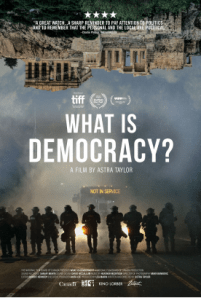 hoi polloi in America and across the Atlantic. It talks to barbers and doctors, students and politicians, in legislatures and at Trump rallies, to try to determine what democracy actually is.
hoi polloi in America and across the Atlantic. It talks to barbers and doctors, students and politicians, in legislatures and at Trump rallies, to try to determine what democracy actually is.
It’s called What Is Democracy and is written and directed by noted documentary filmmaker Astra Taylor, whose works include Examined Life and Zizek!
What is Democracy had its world premier at #TIFF18.
I spoke with Astra Taylor at NFB’s Toronto headquarters during TIFF. Her film is opening soon.
Daniel Garber talks with director Håvard Bustnes about his new doc Golden Dawn Girls
 Hi, this is Daniel Garber at the Movies for culturalmining.com and CIUT 89.5 FM.
Hi, this is Daniel Garber at the Movies for culturalmining.com and CIUT 89.5 FM.
It’s the 2010s in Greece. The EU and northern European banks are foreclosing on Greek debt, demanding the country adopt austerity measures. There is talk of Grexit — Greece  pulling out of the European Union altogether. Newcomers, fleeing war in the Middle East and Africa, are seeking refuge on their shores. And new political parties are springing up amidst the turmoil, with one, the leftist Syriza, eventually rising to prominence. But on the extreme right, another party arises. Golden Dawn combines Nazi regalia, fascist ideology, and anti-immigrant violence in its attempt to seize power. What is Golden Dawn,
pulling out of the European Union altogether. Newcomers, fleeing war in the Middle East and Africa, are seeking refuge on their shores. And new political parties are springing up amidst the turmoil, with one, the leftist Syriza, eventually rising to prominence. But on the extreme right, another party arises. Golden Dawn combines Nazi regalia, fascist ideology, and anti-immigrant violence in its attempt to seize power. What is Golden Dawn,  what does it stand for, and who are the people in its inner circle?
what does it stand for, and who are the people in its inner circle?
A bold new documentary looks at the party from an insiders’ point of view. The filmmaker gained access by appealing to the women closest to the party leaders – a  mother, a wife and a daughter – who offer their candid insights while the men are in jail. The documentary is Golden Dawn Girls, by the noted Norwegian filmmaker Håvard Bustnes.
mother, a wife and a daughter – who offer their candid insights while the men are in jail. The documentary is Golden Dawn Girls, by the noted Norwegian filmmaker Håvard Bustnes.
I spoke to Håvard in Norway via telephone from CIUT 89.5 FM in Toronto.
Golden Dawn Girls will have its North American premier at Toronto’s Hot Docs International Documentary Film Festival on May 1st, 2018.
Looking for trouble. Films reviewed: Thelma, Amerika Square, Three Billboards Outside Ebbing, Missouri
Hi, this is Daniel Garber at the Movies for culturalmining.com and CIUT 89.5 FM.
More fall film festivals: The EU Film Fest brings free movies from across Europe to Toronto; and look out for the all-Canadian horror festival called Blood in the Snow – BITS for short – coming next weekend.
We all face trouble at times, but some people seem to invite it. This week I’m looking at movies about people getting into trouble. There’s a bigot in Athens trying to make trouble, a young woman in Oslo trying to avoid trouble, and a middle-aged woman in Missouri who acts like trouble is her middle name.
Dir: Joachim Trier
It’s present day Norway. Thelma (Eili Harboe) is a teenaged girl at university in Oslo who is living on her own for the very first time. She was homeschooled by devout Christian parents including a very strict father. Aside from frequent calls from her parents checking up on her, Thelma is suddenly free to discover life on her own. She gets invited to parties, drinks beer, has arguments about politics, and flirts with an obnoxious boy who pursues her relentlessly. It’s thrilling, but also scary. Strange things seem to happen around her when she’s nervous. When she really starts to panic she shakes,  shivers, and collapses into what look like epileptic seizures. But are they? And all around her nature seems to react: birds crash into windows, leaves rustle, then things start to shake, break and shatter.
shivers, and collapses into what look like epileptic seizures. But are they? And all around her nature seems to react: birds crash into windows, leaves rustle, then things start to shake, break and shatter.
Anja (Kaja Wilkins) is one of her classmates who looks out for her. They seem to have a psychic bond, meeting almost at random – when athelma wants to see her, she seems to just  appear. More than that, there’s a strong sexual attraction between the two of them. But Thelma is afraid to tell her the truth: when she thinks hard enough she unleashes forces that can make people… disappear!
appear. More than that, there’s a strong sexual attraction between the two of them. But Thelma is afraid to tell her the truth: when she thinks hard enough she unleashes forces that can make people… disappear!
Thelma is a terrific coming of age drama full of suspense, mystery and the supernatural. It’s been called the Norwegian Carrey – fundamentalist christian girl with telekinetic powers – but it’s also totally different. She’s not bullied, she’s not weak, and there’s a fascinating love story in the mix.
Harboe and Wilkins — great as Thelma and Anja — are both new faces I want to see more of.
Dir: Yannis Sakandis
Present-day Athens. Billy (Yannis Stankoglou) is a chill tattoo artist who runs his own shop. He looks like a young Bruce Springsteen in a diverse, workingclass neighbourhood. He lives in an apartment block near Amerika Square, a rundown local park. He just wants to live his life. Tarek (Vassilis Koukalani) is a Syrian refugee with a small daughter. He wants to make his way to safety in Germany, but  keeps failing. And when he gets separated from his daughter he breaks into panic mode. Tereza (Ksenia Dania) is a beautiful, biracial nightclub singer (who speaks Greek). She wants to escape local hoodlums who control her. She meets Billy when
keeps failing. And when he gets separated from his daughter he breaks into panic mode. Tereza (Ksenia Dania) is a beautiful, biracial nightclub singer (who speaks Greek). She wants to escape local hoodlums who control her. She meets Billy when  she asks him to rewrite her tattoo and free her from virtual slavery. Is there something more between Billy and Tereza? Nakos (Makis Papadimitriou) is overweight and underemployed. He’s in his late thirties but still lives with his parents. He is obsessed with foreigners – he methodically counts how many live in the apartment and worries there will be more immigrants than Greeks. They’re changing everything and taking over! he says. His own
she asks him to rewrite her tattoo and free her from virtual slavery. Is there something more between Billy and Tereza? Nakos (Makis Papadimitriou) is overweight and underemployed. He’s in his late thirties but still lives with his parents. He is obsessed with foreigners – he methodically counts how many live in the apartment and worries there will be more immigrants than Greeks. They’re changing everything and taking over! he says. His own  parents migrated to Athens from a small village, but he considers the square his own. And he’s willing to do almost anything to drive the immigrants out. Will this include murder?
parents migrated to Athens from a small village, but he considers the square his own. And he’s willing to do almost anything to drive the immigrants out. Will this include murder?
Amerika Square is a good drama about the current conflicts in Athens and across Europe. It looks at the plight of refugees and migrants, locals who welcome them, and the rise of rightwing groups who violently oppose immigration. It follows an ensemble cast in a complex storylines that all comes together in the end, along with a few ironic plot twists.
 Three Billboards Outside Ebbing, Missouri
Three Billboards Outside Ebbing, Missouri
Wri/Dir: Martin McDonagh
Mildred (Frances McDormand) is a divorced woman who runs a gift shop in tiny Ebbing Missouri. She’s been on edge since her teenaged daughter was brutally raped and murdered. The police have yet to charge anyone with the crime. So she rents three derelict billboards on a road near her home. The billboards, like giant Burma Shave signs, ask in garish letters, why Police Chief Willoughby (Woody Harrelson) hasn’t caught the killer. But when the story is picked up by local media, the powers that be fight back: highschool bullies, her dentist, even a priest. They strongly pressure her to take down the signs, and attack her friends, employees and even her son (Lucas Hedges). But she refuses.  This ignites a feud between Mildred and one cop in particular, the corrupt and bigoted Dixon (Sam Rockwell). Dixon lives with his gravelly voiced mother who goads him on to greater and greater acts of violence. But Mildred fights back, upping the ante from words to fistfights, to shooting to firebombing.
This ignites a feud between Mildred and one cop in particular, the corrupt and bigoted Dixon (Sam Rockwell). Dixon lives with his gravelly voiced mother who goads him on to greater and greater acts of violence. But Mildred fights back, upping the ante from words to fistfights, to shooting to firebombing.
Three Billboards Outside Ebbing Missouri is a satisfying, exciting, but extremely violent movie about irascible characters facing big issues in a small town. I call it cutely violent – which fits with the director’s other movies: In Bruges and Seven Psychopaths. The violence is extreme and graphic, but it always retains a touch of humour. Peter Dinklage and Sam Rockwell are back again, but this time a woman is allowed to shine in the lead role, with great results. Frances McDormand is perfect as this hateable/loveable character. Mildred might curse a blue streak but you can still see the heart in this irascible, hard-ass woman.
Three Billboards Outside Ebbing, Missouri won the People’s Choice Award at TIFF17.
Thelma and Three Billboards outside Ebbing, Missouri both open today in Toronto; check our local listings. Amerika Square is playing at Toronto’s European Union Film Festival. Go to euffto.com for details.
This is Daniel Garber at the Movies, each Friday morning, on CIUT 89.5 FM and on my website, culturalmining.com.



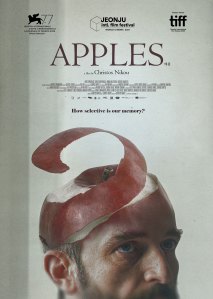
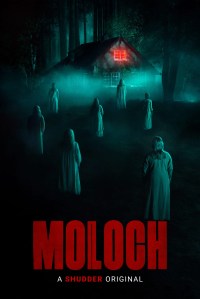
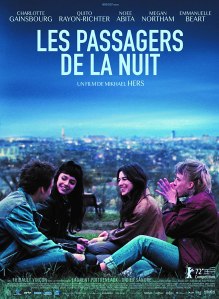

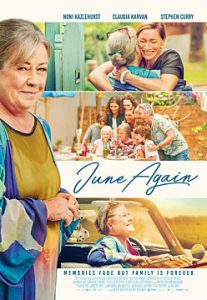








leave a comment